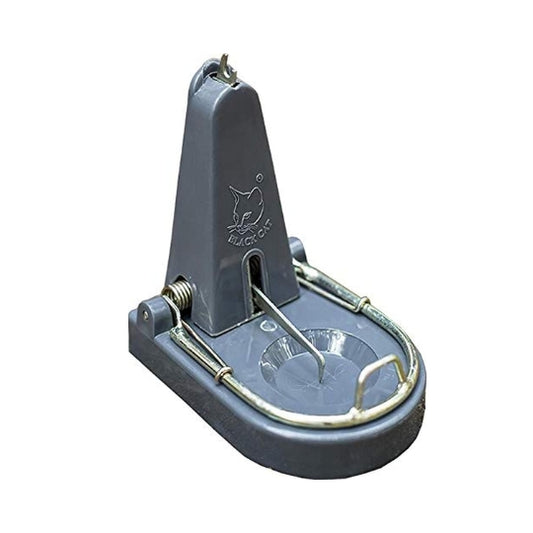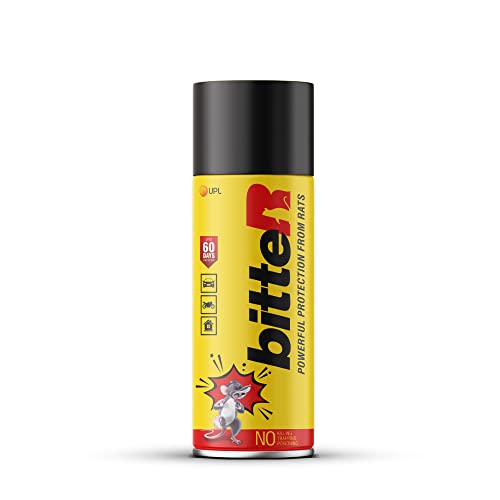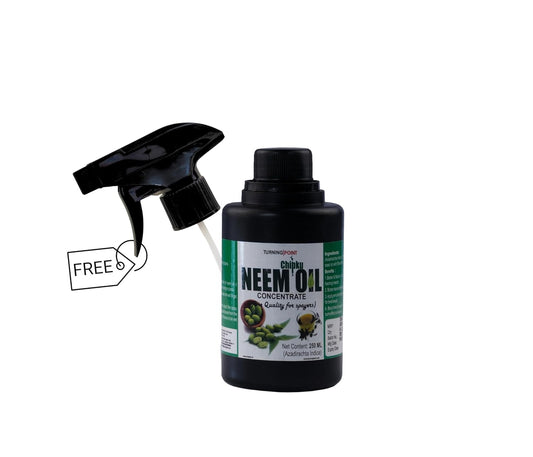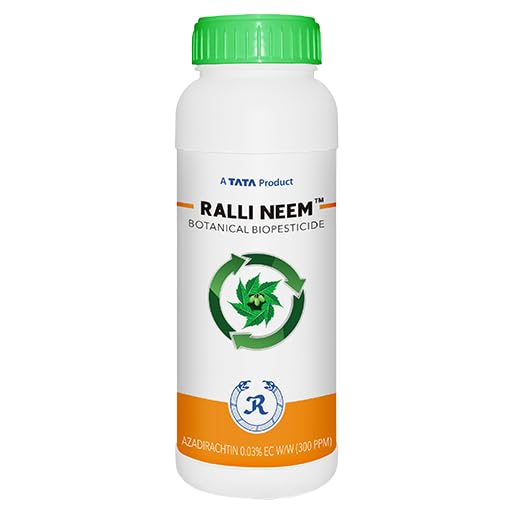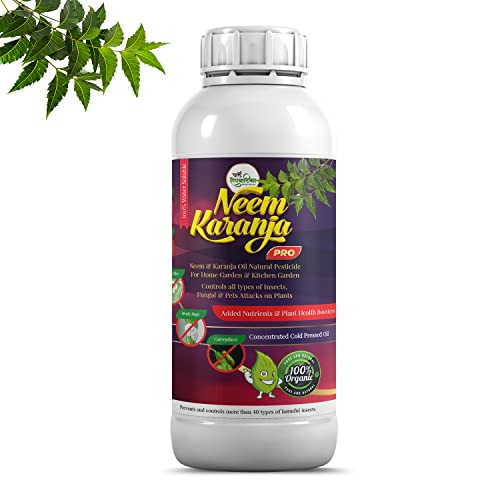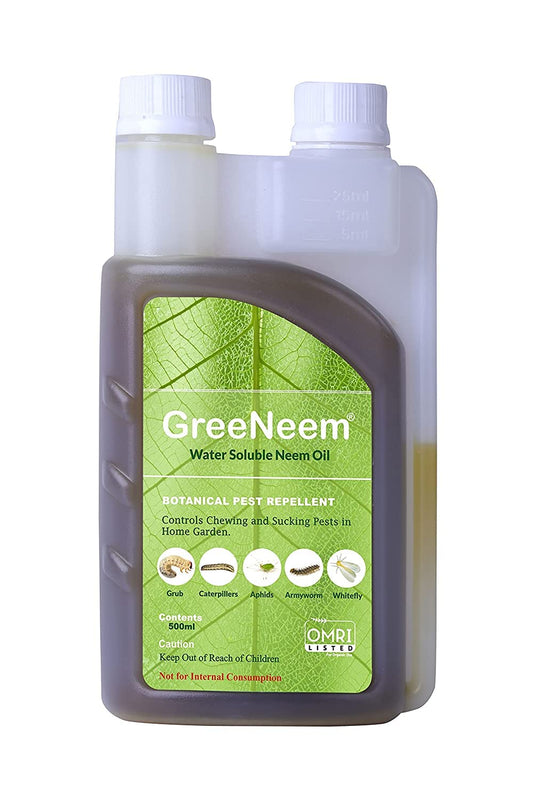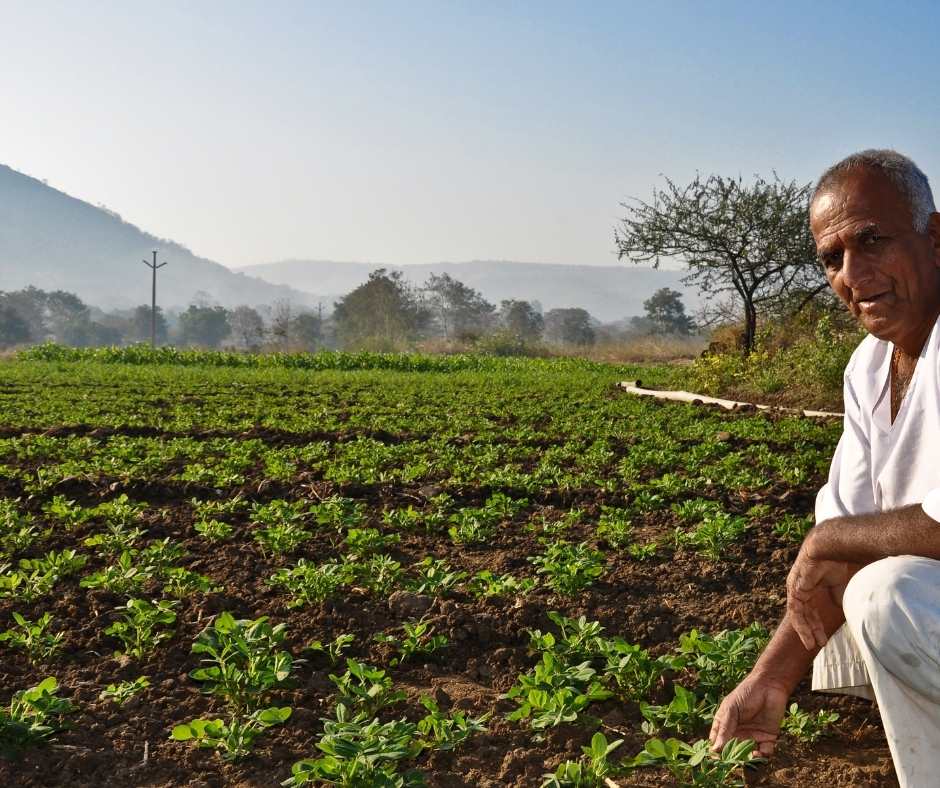
Rabi Season Crops for Maharashtra Farmers
Share
The rabi season is coming up, and Maharashtra farmers are looking for crops to grow. However, due to less monsoon and depleting water storage, only 10% of farmers are expected to have enough water for the upcoming season.
Here are some crops that can be grown with less water:
- Field crops: gram, wheat, maize, and jwari.
- Vegetables: coriander, fenugreek, and guar.
- Fruits: watermelon, muskmelon, cucumber, and bitter gourd.
Profitability of these crops
- Gram: Gram is an important crop and can be profitable, especially if you sow dollar gram. Water twice should be sufficient for good yeild. Do underteake seed treatment viz. UPL electron, Tata Rallis Neonix. Farmers insisting on organic farming should use trichoderma, pseudomonas biopesticides and rhizobium biofertilziers for seed treatment
-
Wheat: Wheat is essential for food security and is likely to sell at a good price this year. Wheat can be stored safely for longer duration and new seed varietis are avaible for better yield and disease resistance.
The following are new wheat varieties recommended by agriculture universities in Maharashtra:
- MACS 6478 developed by Agharkar Research Institute (ARI), Pune.
- Parbhani-51 developed by Vasantrao Naik Marathwada Krishi Vidyapeeth (VNMKV), Parbhani.
Both of these varieties are high-yielding and resistant to major diseases and pests. They are also suitable for cultivation under a variety of climatic conditions in Maharashtra.
MACS 6478 is a bread wheat variety that matures in 110 days and has an average yield of 5.5 tonnes per hectare. It is resistant to leaf rust, stem rust, and yellow rust. The chapati quality of MACS 6478 is also excellent.
Parbhani-51 is a durum wheat variety that matures in 105 days and has an average yield of 5.2 tonnes per hectare. It is resistant to leaf rust, stem rust, and yellow rust. Parbhani-51 is also known for its high protein content and good chapati quality.
Farmers in Maharashtra are advised to contact their local agriculture department or agriculture university for more information on these new wheat varieties and how to obtain seeds.
-
Maize: Maize can be used for fodder and is a good option if water is limited.
Maize is a highly nutritious and palatable fodder crop. It is rich in carbohydrates, proteins, minerals, and vitamins. Maize fodder is highly digestible and can be fed to a variety of livestock, including cattle, buffaloes, sheep, goats, and horses.
Maize fodder is a good source of energy for livestock and can help them to maintain a healthy weight. It also helps to improve milk production in dairy animals. Maize fodder can also be used to feed livestock during periods of drought or scarcity of other fodder crops.
How to store maize fodder for long duration
There are two main ways to store maize fodder for long duration:
-
Silage: Silage is a fermented form of maize fodder. It is made by cutting and chopping maize plants and then storing them in a sealed container. The fermentation process preserves the nutrients in the fodder and makes it more digestible. Silage can be stored for several months or even years.
-
Hay: Hay is a dried form of maize fodder. It is made by cutting and drying maize plants. Hay can be stored for long periods of time, but it is not as nutritious as silage.
How fruitful maize fodder business can be
Maize fodder business can be very fruitful for farmers. There is a high demand for maize fodder from dairy farmers and other livestock owners. Farmers can sell maize fodder fresh, as silage, or as hay.
To make the maize fodder business more profitable, farmers can adopt the following measures:
- Grow high-yielding varieties of maize that are suitable for fodder production.
- Use good agricultural practices to maximize fodder yield.
- Harvest the fodder at the right stage to ensure high nutritive value.
- Store the fodder properly to prevent spoilage.
- Market the fodder to the right customers.
Farmers can also sell maize fodder to feed mills and other companies that produce livestock feed. This can be a more lucrative option than selling fodder directly to farmers.
-
-
Jwari: Jwari is another good option if water is limited.
Jowar is a good source of fiber, protein, and minerals. It is also gluten-free, making it a good choice for people with celiac disease or gluten intolerance. Jowar is also relatively low in calories and carbohydrates, making it a good choice for people who are watching their weight.
In recent years, there has been a growing interest in jowar among urban food cautious people. This is due to the following factors:
- Health benefits: Jowar is a nutrient-rich food that offers a number of health benefits. It is a good source of fiber, protein, and minerals, and it is also gluten-free.
- Sustainability: Jowar is a drought-tolerant crop that can be grown in a variety of climates. This makes it a sustainable food option, especially in the face of climate change.
- Versatility: Jowar can be cooked in a variety of ways, including grinding it into flour, making it into porridge, or popping it into popcorn. It can also be used to make bread, pasta, and other baked goods.
How farmers can get benefits from jwari crop in upcoming rabbi season
Farmers can get benefits from the jowar crop in the upcoming rabbi season by following these tips:
- Grow high-yielding varieties of jowar: There are a number of high-yielding varieties of jowar available. Farmers should choose varieties that are suited to their local climate and soil conditions.
- Use good agricultural practices: Farmers should use good agricultural practices, such as timely sowing, irrigation, and fertilization, to maximize jowar yield.
- Harvest the jowar at the right stage: Jowar should be harvested when the seeds are fully mature and hard. Harvesting jowar at the right stage will ensure high grain quality and yield.
- Store the jowar properly: Jowar should be stored in a cool, dry place to prevent spoilage.
- Market the jowar to the right customers: Farmers can sell jowar to consumers directly, or they can sell it to wholesalers and processors.
Farmers can also increase their profits from the jowar crop by processing it into value-added products, such as jowar flour, jowar flakes, and jowar pasta. These products can be sold to consumers at a higher price than raw jowar.
- Coriander: Coriander is a profitable crop and can be grown with less water. Fresh coriander market is likely to be good during december to may. Coriander seeds can also be a handsome produce.
- Fenugreek: Fenugreek is another profitable crop that can be grown with less water. This is likely to give fast money. If possible Fenugreek seeds can also be sold at lucrative rate.
- Guar: Guar is a crop that is used to make guar gum, which is used in a variety of products. It is a relatively new crop in Maharashtra, but it can be profitable if grown with less water.
- Watermelon: Watermelon is a profitable crop, but it requires a lot of water. If you have enough water, watermelon can be a good option.
- Muskmelon: Muskmelon is another profitable crop that requires a lot of water. If you have enough water, muskmelon can be a good option.
- Cucumber: Cucumber is a profitable crop that can be grown with less water.
- Bitter gourd: Bitter gourd is a profitable crop that can be grown with less water.
Conclusion
If you are a Maharashtra farmer with less water, the best crops to grow are gram, wheat, maize, jwari, coriander, fenugreek, guar, cucumber, and bitter gourd. These crops are all profitable and can be grown with less water.
If you have enough water, you can also consider growing watermelon and muskmelon. These crops are more profitable, but they also require more water.
No matter which crops you choose, make sure to do your research and talk to other farmers to get advice.








